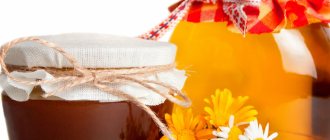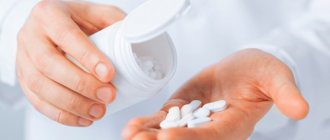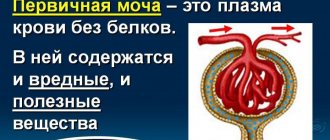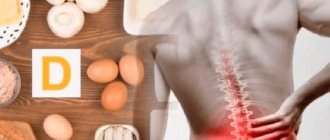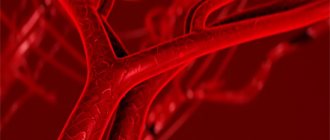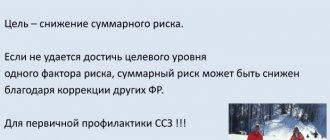Vein thrombosis is a serious and dangerous disease that, in the absence of correct treatment and prevention, can lead to death. Blood clots sometimes form even for no apparent reason, but most often there are provoking factors - recent surgeries, injuries. To reduce risks, drug therapy is indicated. What medications do doctors prescribe for thrombosis? What is the difference between anticoagulants and antiplatelet agents?
Cardiomagnyl
This drug contains two active substances: magnesium hydroxide and acetylsalicylic acid. Aspirin inhibits platelet aggregation and blocks thromboxone synthesis. And magnesium hydroxide protects the mucous membranes of the gastrointestinal tract from the aggressive effects of acetylsalicylic acid. Cardiomagnyl is prescribed for the prevention of heart attack and stroke, thrombosis and angina. Cardiomagnyl is also taken by those patients who have already had a heart attack in order to prevent another. The medicine is sold without a prescription. The price of Cardiomagnyl is about 116 rubles for 30 tablets.
Cardiomagnyl
Nycomed Pharma, Germany
Preventive therapy for increased platelet aggregation in: thrombosis and embolism, coronary heart disease, myocardial infarction, ischemic strokes and cerebrovascular accidents, migraine.
Used for the prevention of thrombosis in cardiovascular surgery (in the postoperative period after coronary angioplasty, coronary artery bypass grafting). from 96
5.0 1 review
3477
- Like
- Write a review
Blood thinners - differences between anticoagulants and antiplatelet agents
There are two groups of blood thinning drugs - anticoagulants and antiplatelet agents. All of them are intended to prevent thrombosis, but differ in their mechanism of action. Anticoagulants inhibit the activity of proteins involved in blood clotting. Antiplatelet agents prevent platelets from clumping together.
For thrombosis of the veins of the lower extremities, anticoagulants are most often prescribed. Drugs of the second group are indicated more likely for cardiovascular diseases - after valve replacement operations, heart attack or stroke. Their task is to minimize the risk of pulmonary embolism as a result of the formation and separation of a blood clot.
Aegitromb
“Egithromb” is usually used to prevent complications from heart attack, stroke, arterial occlusive disease, acute coronary syndrome, angina pectoris and atrial fibrillation. The active ingredient of the drug is clopidogrel hydrosulfate. The drug binds perfectly to plasma proteins (94-98%). The therapeutic effect occurs within two hours after taking Egithromb. After 4-7 days of taking the drug, blood density indicators return to normal. The doctor may prescribe a blood thinner, depending on the severity of the disease, from several days to six months. The price of “Egitromba” is about 883 rubles for 28 tablets.
Aegitromb
Egis, Hungary
- prevention of atherothrombotic complications in adult patients with myocardial infarction (with a duration of several days to 35 days), ischemic stroke (with a duration of 7 days to 6 months) or occlusive peripheral artery disease;
— prevention of atherothrombotic complications in adult patients with acute coronary syndrome with ST segment elevation with the possibility of thrombolytic therapy (in combination with acetylsalicylic acid); - prevention of atherothrombotic complications in adult patients with acute coronary syndrome without ST segment elevation (unstable angina, myocardial infarction without Q wave), incl. in patients undergoing stenting (in combination with acetylsalicylic acid); - prevention of atherothrombotic and thromboembolic complications, including stroke, in atrial fibrillation in adult patients who have at least one risk factor for the development of vascular complications, who cannot take indirect anticoagulants and have a low risk of developing from 714
885
- Like
- Write a review
Rating of the best blood thinners
| Nomination | place | Name of product | minimum price |
| Rating of the best blood thinners | 1 | Acetylsalicylic acid (Cardiomagnyl, Thrombo-Ass, ASA - Cardio, Aspirin-Cardio) | 117 ₽ |
| 2 | Curantyl (dipyridamole) | 525 ₽ | |
| 3 | Plavix, Deplatt, Zilt, Clopigrant, Lopirel, Egitromb (clopidogrel) | 947 ₽ | |
| 4 | Trental, Agapurin, Vazonit (pentoxifylline) | 144 ₽ | |
| 5 | Wessel Due F, Angioflux (sulodexide) | 2 351 ₽ |
Acetylsalicylic acid (Cardiomagnyl, Thrombo-Ass, ASA - Cardio, Aspirin-Cardio)
Rating: 4.9
Acetylsalicylic acid is the founder of a large and very important group of drugs called nonsteroidal anti-inflammatory drugs (NSAIDs). The first word, “non-steroidal,” means that they have nothing to do with steroid hormones, which have the most powerful ability to suppress inflammation.
Acetylsalicylic acid is an artificially enhanced natural variety of one of the salicylates, which was previously used in medicine as an antipyretic. Most of it was contained in the bark of white willow (salicin), and it is also found in raspberries. The artificial molecule acetylsalicylic acid is a much stronger substance.
During the 20th century, many different products from this group were created, such as Ibuprofen, Meloxicam, Nimesulide and others. All of them, to varying degrees, are able to suppress the development of inflammation, reduce pain, and have an antipyretic effect.
Along the way, it turned out that low doses of acetylsalicylic acid, which are not high enough to reduce high fever, with planned and long-term use, help to significantly reduce the risk of thrombosis and the development of heart attacks and ischemic strokes. It was found that after a single dose of acetylsalicylic acid, the effect of improving blood flow persists for a whole week.
The mechanism of action is based on blocking the enzyme cyclooxygenase type 1 (COX-1). This leads to the launch of a cascade of processes: the synthesis of prostaglandins, thromboxane and other substances is blocked, and this leads to a decrease in aggregation, or stickiness of platelets to each other, and suppression of the induction of thrombosis. The establishment of this fact was a real gift for medicine. Over the course of decades, a large amount of practical material has accumulated, and currently the minimum dosage that can, when taken daily, reduce the risk of developing vascular accidents is 75 mg. The standard dosage ranges around 100 mg in terms of acetylsalicylic acid.
All cardiac aspirins are designed for long-term use and are taken before meals with plenty of liquid. The main indications, as mentioned above, are the prevention of acute myocardial infarction, secondary prevention of heart attacks and ischemic strokes. Cardiac aspirin is used to prevent thromboembolic complications after surgery and various vascular interventions. Indications for the use of ASA (acetylsalicylic acid) are very wide. These are diabetes mellitus and obesity, angina pectoris and the risk of developing vascular accidents. It is used in the presence of bad habits, and especially when smoking. The use of acetylsalicylic acid improves the condition of coronary implants and various transplants, including after valve surgery and after coronary artery bypass grafting.
However, acetylsalicylic acid, even in such small dosages, but used for a long time, has its contraindications. First of all, this is an exacerbation of gastric and duodenal ulcers, as well as erosive gastritis. These are conditions with a high risk of gastrointestinal bleeding, low blood clotting, and hemorrhagic diathesis. Under no circumstances should it be used during pregnancy, lactation and by persons under 18 years of age. Children are strictly prohibited from taking acetylsalicylic acid due to the possible development of Reye's syndrome, even death, so children are prescribed either ibuprofen or paracetamol to reduce fever and reduce inflammatory symptoms.
Aspirin is contraindicated in so-called aspirin-induced asthma and recurrent nasal polyposis. It should not be used in cases of severe renal and liver failure. There are also a large number of relative contraindications, such as gout, hyperuricemia, and conditions before surgery due to the possible development of bleeding.
Symptoms of overdose may also occur, and they are especially dangerous in the elderly, so only a doctor should prescribe ASA for long-term use.
Currently, in pharmacies you can buy a large number of varieties of acetylsalicylic acid in low dosages, the so-called “heart aspirins”. So, if we consider the popular dosage of 100 mg, then one package, designed for monthly use, and consisting of 30 tablets, has a different, but low cost, depending on the manufacturer. So:
- ASK - Cardio, from the domestic manufacturer Medisorb, will cost an average of 50 rubles;
- Aspicor from the domestic manufacturer JSC Vertex in the same dosage and quantity costs 56 rubles;
- Cardiask produced by Canonpharma Production CJSC - 60 rubles.
As you can see, the price of domestic drugs is approximately the same. If we consider an imported drug, for example, Trombo - ACC in the same dosage and in the amount of 28 tablets, produced by the Austrian company Lannacher, then its cost will be the same - 52 rubles. per package.
About enteric forms and systemic action
Currently, so-called “enteric-soluble forms” of acetylsalicylic acid, or blood-thinning tablets that bypass the stomach and dissolve only in the small intestine, are very popular on the pharmaceutical market. This fact is achieved by adding a special shell for acetylsalicylic acid tablets, which consists of magnesium hydroxide. Everyone knows that this base is part of antacid drugs, and simply helps acetylsalicylic acid bypass the acidic environment of the stomach.
According to manufacturers, this device helps reduce the risk of the most common side symptom - an increased risk of gastric bleeding, exacerbation of ulcerative and erosive processes in the gastric mucosa.
But in fact, it has been proven for quite some time that the ulcerogenic, or gastric ulcer-promoting effect of acetylsalicylic acid is a systemic effect. This means that ASA harms the stomach not only locally, being inside it, but having already completely passed through the entire gastrointestinal tract and being absorbed into the blood. This means that relying only on local coverage when taking acetylsalicylic acid will be an insufficient way to protect against systemic side effects, and this can be regarded as an element of an advertising strategy.
Perhaps the most famous drug from this group is Cardiomagnyl. You can also name such agents as Trombital, Trombomag, Fazostabil and so on. The price of these tablets is slightly higher than just tablets without a protective, acid-resistant coating. Thus, a package of Cardiomagnyl in 30 tablets of 75 mg, designed for a month, averages 135 rubles.
Pros and cons of ASK
Whatever the disadvantages of acetylsalicylic acid, all the same, the benefits significantly outweigh all sorts of disadvantages (of course, if the prescription and administration of the drug is under medical supervision). The main disadvantages will be absolute contraindications - acute gastric ulcer, the risk of gastrointestinal bleeding, childhood and all the conditions listed above. Bleeding may develop if tooth extraction and other manipulations are performed while taking aspirin. There is a fact of the development of aspirin asthma, individual intolerance to this drug and other conditions.
But still, taking into account all the contraindications and side effects, all these cases are significantly less than the number of patients who need to reduce the risk of heart attack and stroke, which includes millions of people. Acetylsalicylic acid tablets are inexpensive, well tolerated by the vast majority of patients, and are considered to actually prolong life in the presence of cardiovascular risk factors.
Curantyl (dipyridamole)
Rating: 4.8
Dipyridamole, or Curantil, is the second drug from the group of blood thinners with proven effectiveness, but it is prescribed somewhat less frequently than acetylsalicylic acid. And this is unjustified: the advertising of ASA is so strong that it has “pushed into the shadows” dipyridamole. Curantil not only improves the rheological properties of blood and helps reduce platelet aggregation, but also has other systemic hemodynamic effects. So, it dilates blood vessels, and this effect is especially noticeable on small coronary arteries and arterioles.
As a result, Curantil reduces overall peripheral vascular resistance, helps lower blood pressure, and additionally helps to normalize venous outflow. In the brain, it reduces cerebral vascular resistance, and in obstetrics and gynecology it can improve placental blood flow, especially in various threatening conditions. In addition, dipyridamole activates the immune system and increases the activity of the interferon induction system. As a result, this substance has not only antiaggregation, but also angioprotective and immunomodulatory effects.
Curantil is prescribed in the same way as acetylsalicylic acid for the prevention of arterial and venous thrombosis, thromboembolism, and microcirculation disorders. A special indication will be the prevention of pulmonary embolism after surgery, after valve surgery. Curantil is indicated as a remedy for the relief of placental insufficiency during complicated pregnancy. For prevention, it is necessary to take Curantil in a dosage of 75 to 225 mg per day, dividing the daily dose into several doses. The drug is used as a vasodilator and for prevention for a long time, under the supervision of a doctor.
A separate indication, and quite unusual for thinners, will be the prevention of influenza and respiratory viral infections. For this purpose, the drug is used in a minimum dosage of 25 mg 2 times a day (one day). This dosage is used only once a week, for a month. That is, a person uses Curantil for only 4 days per month.
Curantil is produced by the famous German pharmaceutical company Berlin-Chemie, the Menarini group. A package of 120 tablets with a dosage of 25 mg will cost an average of 650 rubles. If the patient is prescribed the minimum dosage of 75 mg per day, then this amount will last for about a month and a half. If twice the dosage is needed, then this package may only last for one month or even less. There are also domestic analogues, for example dipyridamole, which is produced by the Obolenskoye pharmaceutical company. So, 120 tablets can be purchased for only 387 rubles. This is, of course, a significantly smaller amount.
Advantages and disadvantages
The advantage of dipyridamole, or Curantyl, is the ability to use it as a vasodilator (vasodilator), which acetylsalicylic acid lacks. It should be prescribed to patients several times a day; a flexible approach is important in relation to the daily dose, which can range from 75 to 600 mg. The possibility of using it in obstetrics and gynecology is important, including not only for preventive, but for therapeutic purposes.
Few specialists prescribe dipyridamole as an antiviral or immunomodulatory substance, but, nevertheless, some experience has been accumulated in its use during periods of ARVI and influenza epidemics. Of course, dipyridamole is considered a more expensive drug than numerous trade names of acetylsalicylic acid, but it also “works” not only as a disaggregant. It not only affects the rheological properties of blood, but also improves hemodynamics in the heart, brain and placental vessels.
Of course, dipyridamole also has contraindications, such as acute heart attack, unstable angina, severe forms of hypertension and hypotension, hemorrhagic disorders and childhood. It is especially important to remember that coffee and tea, which are consumed in significant quantities, weaken the effect of Curantil.
Plavix, Deplatt, Zilt, Clopigrant, Lopirel, Egitromb (clopidogrel)
Rating: 4.7
Plavix, or clopidogrel (INN), will be a serious medicine, and is also a disaggregant, like ASA, a blood thinner. Naturally, the higher power and strength of Plavix will never push ASA to second and third positions. The fact is that aspirin is immeasurably cheaper, and is also widespread and safe to use. Clopidogrel has a completely different mechanism of action, associated with an irreversible change in special receptors on platelets.
Clopidogrel was first introduced into clinical practice in 1997, and was initially used in fairly serious cardiac patients. Indications for use were acute coronary syndrome, including those with ECG changes, percutaneous coronary intervention, and other cases. Quite high effectiveness was observed in patients with unstable angina. In an outpatient clinic, it is important that extensive experience has been accumulated in the use of clopidogrel in patients with atherosclerosis, in particular with chronic cerebral ischemia. Therefore, if the patient has resistance to antithrombotic therapy, and aspirin alone does not cope with improving the rheological properties of the blood, then clopidogrel is the drug of choice or expansion of the regimen, especially if the cardiovascular system is already compromised by myocardial infarction. or the presence of unstable angina.
One of the important advantages of clopidogrel over acetylsalicylic acid will be the ability to prescribe it to patients with unstable angina, which is based on vasospasm, and aspirin is contraindicated for this diagnosis.
It is important that Plavix can be used not only as monotherapy, but also together with acetylsalicylic acid, and even as part of triple antithrombotic therapy. Thus, Plavix was effective in such a complex combination as its combined use with acetylsalicylic acid and the anticoagulant Warfarin. This combination may be necessary in patients with atrial fibrillation and prosthetic heart valves.
Typically, the standard dosage of Plavix in patients with atherosclerotic vascular changes who have recently suffered a heart attack or stroke is 75 mg per day. Already at this dosage there is a statistically significant reduction in the risk of recurrent heart attack, stroke and cardiovascular death. It is important that the use of clopidogrel was associated with a significantly lower number of side effects such as gastrointestinal bleeding compared with acetylsalicylic acid. It is necessary to take Plavix for a long time.
Currently, in the pharmacy you can purchase both original dilution medications - Plavix produced by Sanofi, and generics. Thus, a package of Plavix with a dosage of 75 mg, designed for a monthly course, costs on average 990 rubles. Indian generics, for example, such as Clapitax, will cost half as much. Clopidogrel Canon, produced by the domestic pharmaceutical company CJSC Canonpharma Production, will cost 340 rubles. Perhaps this is one of the cheapest analogues on the domestic market.
Advantages and disadvantages
First of all, you need to remember that Plavix, or any clopidogrel, is a serious medicine for compromised patients. It should not be taken by relatively young people with low levels of physical activity, excess weight and bad habits. In this case, acetylsalicylic acid will cope well with prevention. But patients with the development of systemic atherothrombosis, after various heart surgeries, or who have had a heart attack or stroke, need to use this medicine for secondary prevention.
A very big plus will be the fact that it is combined with acetylsalicylic acid, and for such individuals it significantly reduces the risk of cardiac death when compared with taking ASA alone. The downside of clopidogrel is considered to be its rather high cost, and the need, while using it, to regularly monitor various types of bleeding, as well as monitor the functional state of the liver.
Trental, Agapurin, Vazonit (pentoxifylline)
Rating: 4.6
Previous drugs, such as acetylsalicylic acid and clopidogrel, regulated blood clotting by changing the properties of platelets. Trental (pentoxifylline according to the INN) has a thinning effect in several ways. It reduces platelet aggregation, but also affects red blood cells. It improves their ability to tolerate deformation, especially penetrating through small capillaries. Pentoxifylline reduces the concentration of fibrinogen, which regulates the rate of formation of blood clots, and reduces the ability of white blood cells to adhere, or adhesion, to the inner vascular wall. Therefore, as a result, the normalization of the rheological properties of blood is complemented by an improvement in microcirculation and a vasodilating or vasodilating effect.
Pentoxifylline is the active ingredient, and the mechanism of action of this compound is associated with a decrease in the activity of phosphodiesterase (PDE) in vascular muscle cells and in blood elements.
The great value of this drug is the improvement of capillary blood flow, or microcirculation, in areas where they are impaired. Therefore, pentoxifylline and its varieties are indicated for all vascular diseases that are accompanied by disturbances of capillary blood flow.
These are various trophic ulcers on the legs, including those with diabetes and severe stages of varicose veins. Pentoxifylline is prescribed for diabetic angiopathy and various cerebrovascular accidents. Most often, Trental is prescribed to patients with cerebral atherosclerosis, but can also be used in persons with post-traumatic and alcoholic encephalopathy, with dizziness, and memory impairment. Trental is indicated in cases of development of sensorineural hearing loss and circulatory disorders in the retina. It is prescribed in outpatient practice in tablets of 100 mg, three times a day, followed by a gradual doubling of the dose. In this case, you cannot use pentoxifylline more than 1200 mg per day in three doses, that is, a single dose should not exceed 400 mg. Treatment with small doses is also possible, especially in patients with low blood pressure. After all, Trental has a vasodilating effect and can independently lower blood pressure. The duration of the course is determined by the doctor.
Trental is produced by the manufacturer Sanofi-Aventis, and the average cost of a package of 60 tablets of 100 mg is 530 rubles. With an average dosage of 600 mg per day, such a package will last only 10 days, and the monthly cost of the course will be about 1,600 rubles. Therefore, Trental cannot be considered a cheap remedy.
Advantages and disadvantages
A big advantage of Trental will be the ability to influence the microvasculature. This allows him to cope with quite complex conditions in which various trophic disorders occur. However, it is contraindicated in case of massive bleeding, various acute processes, such as heart attack and stroke, hemorrhage in the retina. It is not used in pregnant women, nursing mothers and children. There are many relative contraindications. One of them includes the joint prescription of Trental with Clopidogrel and acetylsalicylic acid. Unlike its predecessors, this remedy is not used with other antiplatelet drugs. But, despite all the disadvantages, pentoxifylline is indispensable in large groups of patients who, in old age, suffer from chronic peripheral circulatory disorders, be it the lower extremities, the retina or the microvasculature of the brain.
Wessel Due F, Angioflux (sulodexide)
Rating: 4.5
Perhaps the last in the cohort of “big” blood thinning drugs can be called Wessel Due F. Its active ingredient is sulodexide, and there are almost no analogues on the domestic pharmaceutical market. You can also find Angioflux, which is produced by the domestic company Sotex Pharma. The original Wessel Due F is produced by the Italian pharmaceutical company Alpha Wasserman. This blood thinning medicine is available in ampoules, capsules containing 250 units each, and a package of sulodexide in 50 capsules will cost from 2,700 rubles.
As you can see, sulodexide is very expensive for the average Russian drug consumer. Why is it so expensive? Sulodexide improves the rheological properties of blood, reduces thrombus formation, protects blood vessels and, at the same time, has an anticoagulant effect. That is, it acts not only on the cellular, platelet component, but also on plasma hemostasis factors. Sulodexide is a natural compound of animal origin. It is isolated from the mucous membrane of the pig intestine. The main component is the low molecular weight heparin-like fraction. Thus, the drug does not affect platelets or their tendency to form thrombosis, but shows a special affinity for certain coagulation factors: antithrombin III and heparin cofactor II.
Therefore, the antithrombotic effect is realized in completely different ways than that of acetylsalicylic acid, clopidogrel and pentoxifylline. The activation of plasma coagulation factor X is suppressed, the secretion of prostacyclin is increased and the amount of fibrinogen is reduced. That’s why Wessel Due F is expensive: it acts gently, but at once on several parts of hemostasis, both cellular and plasma. This is a disaggregant and anticoagulant “in one bottle.”
Sulodexide is indicated for use in patients with a high risk of thrombosis: after a heart attack, with various forms of hypertensive encephalopathy complicated by atherosclerosis. Wessel Due F is indicated in complex therapy for patients with diabetes mellitus, hypertension and vascular dementia. This remedy is successfully used in people with occlusive lesions of the arterial vessels of the lower extremities against the background of atherosclerosis and diabetes. A very important indication is the treatment of a special complication called heparin-induced thrombocytopenia. It sometimes develops after taking heparin.
Initially, the drug is usually used intramuscularly for 2-3 weeks, and then orally, one capsule per day between meals for a month.
Advantages and disadvantages
The advantage of Wessel Due F is its effectiveness and good tolerability. Overdoses are rare, side effects are mild. Most often, various functional disorders of the gastrointestinal tract and allergic reactions can occur. This drug can be used under medical supervision by pregnant and nursing mothers, except during the 1st trimester of pregnancy. Hypersensitivity and increased bleeding, or the manifestation of hemorrhagic diathesis, can be considered a strict contraindication. Perhaps such a mild action and a small number of contraindications are dictated by the natural origin of sulodexide. At the moment, Wessel Due F is an indispensable means of complex therapy for various thrombotic conditions, peripheral circulatory disorders, especially in cases where the patient has intolerance or contraindications to the use of acetylsalicylic acid and its analogues.
In conclusion, we can say that this rating of drugs for improving the rheological properties of blood did not include drugs obtained from leeches, drugs for the treatment of varicose veins based on hesperidin, diosmin and escin, many drugs based on medicinal plants and folk remedies for thinning the blood . This rating includes only those drugs that have proven worldwide effectiveness and a large clinical research base, and at the same time have a systemic effect.
Chime
The active substance of the drug is dipyridamole. “Curantil” helps improve venous and placental outflow, stabilizes blood pressure, dilates blood vessels, improves blood density, etc. “Curantil” is also an excellent immunomodulator that is used to prevent ARVI and influenza. The price of Kurantil is about 590 rubles for 120 tablets.
Chime
Berlin-Chemie (Berlin-Chemie), Germany
The antiplatelet effect of Curantil is associated with its ability to reduce the reverse transport of adenosine into cells, which leads to its accumulation in the extracellular space.
The direct antiplatelet effect of Curantil lies in its ability to increase the antiplatelet ability of PGE1 and suppress the activity of phosphodiesterase in platelets, resulting in the accumulation of cyclic AMP, which has a direct vasodilatory effect on the arteries of the heart, and the accumulation of thromboxane A2 leads to an increase in the lifespan of platelets, due to their reduction aggregation. from 472
1.0 1 review
4507
- Like
- Write a review
Symptoms of the disease
In order to understand whether a person has a problem with blood clotting, he needs to undergo a comprehensive diagnosis. Also, with increased blood clotting, the following symptoms may occur:
- sleep disturbance;
- cold upper and lower extremities;
- noise in ears;
- chronic fatigue;
- absent-mindedness;
- hyperfatigue;
- depression.
Note.
The above symptoms can accompany many pathologies. If a person observes them in himself, then it is impossible to say unequivocally that he has increased blood density. To make an accurate diagnosis in this case, you need to consult a qualified doctor.
Deplatte
The drug is prescribed for the prevention of ischemic stroke, heart attack, peripheral arterial occlusion, and atrial fibrillation. The active ingredient of the drug is clopidogrel. During treatment, doctors often use Deplatte together with acetylsalicylic acid to prevent the formation of blood clots in acute coronary syndrome. The price of “Deplatta” is about 439 rubles.
Deplatte
Torrent Pharmaceuticals, India
Prevention of thrombotic complications in patients with myocardial infarction, ischemic stroke or peripheral arterial occlusion.
In combination with acetylsalicylic acid for the prevention of thrombotic complications in acute coronary syndrome: with ST segment elevation with the possibility of thrombolytic therapy; without ST segment elevation (unstable angina, myocardial infarction without Q wave), incl. in patients undergoing stenting. Prevention of thrombotic and thromboembolic complications, including stroke, in atrial fibrillation (atrial fibrillation) in the presence of at least one risk factor for the development of vascular complications, the inability to take indirect anticoagulants and the presence of a low risk of bleeding (in combination with acetylsalicylic acid). from 433
279
- Like
- Write a review
Etiology of the problem
Doctors identify a number of factors that affect blood thickening:
- severe dehydration (dehydration);
- drinking chlorinated or carbonated water;
- acidosis (general acidification of the body);
- enzyme deficiency;
- deficiency of macro- and microelements in the body;
- hypo- and vitamin deficiencies;
- malignant neoplasms;
- exposure to systematic stress;
- errors in nutrition;
- taking contraceptive medications, diuretics;
- kidney and digestive system disease;
- disruption of the process of fluid absorption in the body.
Risk group
Increased blood clotting is diagnosed in many people, but there are cases when patients are more susceptible to the above pathology.
In the presence of certain diseases, blood clotting increases significantly:
- thrombophlebitis;
- cardiac ischemia;
- stroke;
- malignant hypertension;
- pregnancy;
- obliterating atherosclerosis;
- varicose veins;
- obesity;
- pulmonary thromboembolism.
Trental
The main active ingredient of Trental is pentoxifyline. The drug reduces fibrinogen levels and leukocyte activity. "Trental" is prescribed for cerebral circulatory disorders, degenerative changes, diabetes, otosclerosis, poor blood circulation in the retina, trophic disorders and occlusive disease. For older people, this blood-thinning drug is prescribed for chronic peripheral circulatory disorders. The price of Trental is about 496 rubles for 60 tablets.
Trental
Sanofi, France
Trental is a vasodilating agent that improves the rheological properties of blood (fluidity) by affecting the pathologically altered deformability of red blood cells, inhibiting platelet aggregation and reducing increased blood viscosity.
from 128
1724
- Like
- Write a review
Contraindications
Express contraindications include:
- allergy to the active substance and components of the drug,
- Gastrointestinal diseases, including erosions, ulcers in the acute stage,
- diseases of the bronchopulmonary system
- hemorrhagic diathesis,
- pregnancy and lactation (the 1st and 3rd trimesters are considered especially dangerous)
- aortic aneurysm
- renal or liver failure
- and children under 15 years of age.
Acetylsalicylic acid
Acetylsalicylic acid is the most inexpensive but effective drug that can be bought without a prescription. The medicine is prescribed to prevent blood clots. Acetylsalicylic acid is used to relieve pain, reduce fever and treat inflammatory processes. The drug is effective for varicose veins, headaches, pericarditis, arthritis, Kawasaki disease, fever, Kawasaki disease, as well as for the prevention of heart attacks and strokes. The price of acetylsalicylic acid is about 15 rubles for 20 tablets.
Acetylsalicylic acid
OJSC Pharmstandard-Leksredstva, Russia
Rheumatism, rheumatoid arthritis, infectious-allergic myocarditis;
fever in infectious and inflammatory diseases; pain syndrome of weak and moderate intensity of various origins (including neuralgia, myalgia, headache); prevention of thrombosis and embolism; primary and secondary prevention of myocardial infarction; prevention of ischemic cerebrovascular accidents. In clinical immunology and allergology: in gradually increasing doses for long-term “aspirin” desensitization and the formation of stable tolerance to NSAIDs in patients with “aspirin” AS. from 4
1478
- Like
- Write a review
A little about the thickness of blood and its rheological properties
But before we begin to describe disaggregants - these important prophylactic drugs that thin the blood and have saved hundreds of thousands of lives, you need to understand what “deterioration in fluidity” of blood is, and how such blood differs from “thick blood”.
There is such a simple laboratory indicator as hematocrit. Hematocrit is the percentage, volume ratio between the liquid part of the blood, or its plasma, and cells - formed elements. The greater this ratio, the thicker the blood. This density can occur due to an absolute factor, for example, excessive proliferation of all blood cells with a normal amount of plasma (polycythemia vera, or Vaquez disease).
But much more often, the hematocrit increases due to a decrease in the amount of liquid part of the blood and is called relative. For example, this is a severe intestinal infection with repeated diarrhea and vomiting when the blood thickens due to loss of fluid. Physiological dehydration also occurs. For example, prolonged hard physical labor in a dry, hot climate and intense sweating.
Does the blood thicken during these processes? Of course it thickens. Are blood thinners necessary in this case? Of course not needed. It is enough to restore the fluid balance that has been changed, and the blood will acquire the lost rheological properties. What drugs then are called agents that dilute it? These are drugs from two groups: anticoagulants and disaggregants.
- Anticoagulants
, or medications that inhibit blood clotting processes, are prescribed only by a doctor and are not sold in pharmacies without a prescription. These include some tablet drugs, for example Warfarin, Phenilin. But much more often, such drugs are used that are prescribed subcutaneously. This is heparin and its modifications, which belong to more modern low-molecular fractions, for example, Fraxiparin. Since these drugs can cause a significant number of side effects when self-medicated, these drugs will not be considered in this review. - Drugs from the group of disaggregants
(thinning) reduce the adhesion of blood cells to each other (reduce their aggregation, and, above all, platelets). They prevent the formation of so-called sludges, or columns of blood cells, which are the “germs” of blood clots. As is known, thrombosis underlies vascular accidents leading to death, such as heart attack and stroke.
Therefore, the general indications for the use of thinning agents will be an increased risk of thrombosis.
, the presence of progressive varicose veins, certain forms of hypertension with a high risk of heart attack and stroke, atherosclerosis and increased concentrations of cholesterol in the blood plasma. A separate indication for the prescription of antiplatelet agents is the general increased risk of heart attack and stroke in the population. Thus, the overwhelming majority of the male population of large cities in Russia after 45 years of age has such a risk, so if a man over 45 years of age has a tendency to sedentary work, is overweight, has bad habits and especially smoking, then the drug is indicated for him. disaggregants.
In world practice, there are not many drugs from this group that have proven effectiveness, but each of them has been tested for many years on tens of thousands of volunteers and patients with a wide variety of pathologies. They are included in the rating. It opens with such a well-known drug as acetylsalicylic acid, colloquially called by one of the oldest trade names - “Aspirin”.
Clexane
The active substance of the drug is enoxaparin sodium. The main advantage of Clexane is its almost 100% bioavailability, because the drug is injected under the skin. The maximum concentration of the drug in the blood occurs after three to four hours. This anticoagulant is prescribed for the prevention and treatment of such diseases: acute heart attack, venous thrombosis and embolism. Clexane is sold by prescription and is used mainly in hospitals. If home treatment is necessary, the instructions provide step-by-step guidance. The price of Clexane is about 607 rubles per 0.6 ml.
Clexane
from 579
2835
- Like
- Write a review
Wessel Due F
"Wessel Due F" is a natural preparation. Its active substances are sulodexide (a compound of the heparin-like fraction) and dermatan sulfate, isolated from the intestinal mucosa of pigs. The drug thins the blood and strengthens the walls of blood vessels. "Wessel Due F" is prescribed for acute ischemic stroke, microangiopathy, and lesions of peripheral arteries. Within 15 minutes after intramuscular or intravenous administration, the drug begins to work. The price of “Wessel Due F” is about 2,747 rubles.
Wessel Due F
Angiopathy with an increased risk of thrombosis, incl.
and after myocardial infarction; cerebrovascular accident, including the acute period of ischemic stroke and the period of early recovery; discirculatory encephalopathy caused by atherosclerosis, diabetes mellitus, arterial hypertension; vascular dementia; occlusive lesions of peripheral arteries of both atherosclerotic and diabetic origin; phlebopathy, deep vein thrombosis; microangiopathies (nephropathy, retinopathy, neuropathy); macroangiopathy in diabetes mellitus (diabetic foot syndrome, encephalopathy, cardiopathy); thrombophilic conditions, antiphospholipid syndrome (prescribed together with acetylsalicylic acid, as well as after low molecular weight heparins); treatment of heparin-induced thrombotic thrombocytopenia (as the drug does not cause or aggravate it). from 2232
2839
- Like
- Write a review
Fraxiparine
The active substance of the drug is nadroparin calcium (derived from heparin). The medicine effectively thins the blood and prevents the formation of blood clots because it binds well to plasma proteins. The bioavailability of the drug is approximately 98%; Fraxiparin is absorbed within three to five hours. This blood-thinning drug is prescribed for the treatment and prevention of thromboembolism, angina pectoris, and to prevent blood clotting during dialysis. The price of Fraxiparin is about 2,540 rubles for 10 syringes.


